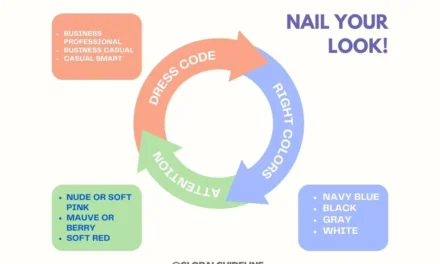In the United States, law enforcement is rather complex. It consists of several agencies and officers, each performing different roles and duties. Arguably the two most well-known figures in American law enforcement are sheriffs and police officers. While both play an important role in the upkeep of public safety, each is placed within a different jurisdiction, performs a different set of duties, and sometimes falls under a different chain of command. Here is an overview of the differences in this article, which points out 10 very crucial differences between sheriffs and police officers to help untangle the vast differences in roles within the USA’s law enforcement landscape.
Table of Contents

1. Jurisdiction: Where They Operate
Sheriff vs Police Jurisdiction
Their operational spheres are probably the most distinguishable factors between sheriffs and police officers. Sheriffs work at the county level, while police officers are restricted to working within the confines of a city or municipality.
- Sheriffs are responsible for law enforcement outside the cities and towns, being more based on the rural and unincorporated parts of a county. Apart from the above description, they handle services such as operating county jails, serving court papers, and providing security in courtrooms.
- Police Officers work within specific city or town limits and are responsible to enforce laws and ordinances, and attend to urban crimes.
This has more often than not meant that sheriffs and police work together, but their attention is distributed across different levels of jurisdiction.
2. Leadership and Command Structure
Police Chief vs Sheriff
Another critical difference can be seen in the leadership structure between police departments and sheriff offices.
- Larger departments are typically headed by a Police Chief appointed by the mayor of the city, or other city or local governing official. The Police Chief serves as the commanding officer for the police department in crime prevention, investigation, and community relations.
- The Sheriff Departments are headed by an Elected Sheriff. In contrast to a Police Chief, a Sheriff is elected by the populace of the county and serves in that capacity for four years, though specific terms may differ depending upon the state. An elected official, sheriffs enjoy greater latitude of independence and are accountable directly to the electorate.
This variance in leadership could influence the way each one of these departments operates and determines the respective policing priorities.
3. Extent of Responsibilities
What Is the Difference between Sheriffs Do and Police Do?
Many sheriffs and police have similar responsibilities, but the extent of duties is somewhat different.
- Sheriffs are often given a wider extent of responsibility as they operate and manage county correctional facilities and provide service of process in warrants, evictions, subpoenas, and other civil matters. They also offer law enforcement services in areas that lack local police forces.
- Police Officers are more concerned with actual delivery of crime prevention and investigation services in the city or town. Other responsibilities include patrolling neighborhoods, responding to emergency calls, and following up on criminal investigations.
Due to these differences, sheriffs tend to be more administrative, and the police officers tend to be more hands-on when it comes to dealing with everyday crime prevention and enforcement of laws.
4. Appointment vs Election
Sheriff vs Police USA: How Are They Chosen?
Another critical difference between sheriffs and police officers is in appointments to the office.
- Sheriffs are elected by the voters of their county. In this respect, sheriffs run for office and are responsible directly to the public. The process for election may be different for different states, but it often takes the form of a general public vote every four years.
- Police Chiefs and Police Officers are appointed. The most common way that chiefs are appointed is through a mayor and city council, although it is usually the case that police officers are employed through some sort of competitive application and testing process. Neither is elected by the people. Their positions are less subject to local politics.
This difference between sheriffs and police officers in how they come into their positions reflects the different ways they work with or serve the communities in which they are located.
5. Training and Qualifications
What Qualifications Do You Need to Be a Sheriff in the USA?
Most of the qualifications for becoming a sheriff are similar, yet different in some regards, as the policies change with every jurisdiction.
- Qualifications are almost always a prerequisite for sheriffs, sometimes including law enforcement experience, physical and written examinations, and more often than not, prior service as a Deputy Sheriff. Qualifications vary from state to state, but leadership and good knowledge of local laws qualify one for this position.
- Depending on the agency or department, police officers usually undergo serious physical and academic training in the police academy. This is then followed by field training under the hands of highly experienced officers. Further qualifications include a high school diploma, background checks, and passing a civil service exam.
Both positions are a commitment to law enforcement service and service to the public, but the road to becoming sheriff is usually longer and goes through a public election.
6. Extent of Work: Law Enforcement vs Administration
Sheriff versus Police Officer: Day-to-Day Responsibilities
While sheriffs and police officers are performing law enforcement duties, their day-to-day activities can be very different.
- Sheriffs may be more administration-oriented, especially in larger counties where they oversee numerous deputies and are in charge of county jails. They might also be performing civil duties like serving court documents and lending security assistance in the courtroom.
- While police officers invest more time and activities in patrol duties, responding to emergency calls, and investigating crimes in general within their jurisdiction, they are usually the first to arrive at the scene of most incidents in urban and suburban areas.
This distinction between the hands-on law enforcement work of police officers and broader administrative and leadership responsibilities of sheriffs further extends the differences between the two.
7. Salary and Compensation
Sheriff vs Police Salary
Salaries of sheriffs and police vary by location, experience, and size of the department.
- Primarily, sheriffs receive a higher salary, representing their supervisory role in addition to the added responsibilities of leading a county law enforcement agency. The size of a sheriff’s county and the sheriff’s department can also influence the sheriff’s salary.
- The salary for Police Officers is usually lower than that of sheriffs and has the potential to increase with experience, overtime hours, or even a rise in rank within the police department. The salaries can be even higher for large-city police officers or specialty units.
When performing a sheriff versus police salary comparison, the scale of their responsibilities, the leadership provided, and their jurisdiction will play a huge role.
8. Interaction with Other Law Enforcement Agencies
Sheriff versus Police versus Trooper
Sheriffs, police officers, and state troopers all play unique roles in law enforcement but often collaborate when on duty.
- Sheriffs consistently collaborate with other agencies at the state and federal levels concerning problems that cross the county lines or involve higher-level crimes.
- Police Officers work primarily with other city departments and agencies concerning city crime issues and community safety.
- State Troopers are primarily involved in enforcing state laws and patrolling the highways, with the common involvement in statewide law enforcement activities. Sometimes they also work in close coordination with sheriffs and police officers regarding certain investigations.
The clear understanding of the interface of these different roles within the realm of the law enforcement apparatus will enable one to grasp the concept of public safety in the USA comprehensively.
9. Community Role
What Is a Sheriff vs Police: Community Impact
Both sheriffs and police officers play active roles in their respective communities, but often their impact varies in terms of job roles and community engagement.
- Sheriffs may have more of a community role to play, especially in rural areas when they may be the only presence for law enforcement. Because of the election processes by and through the people, they may engage more directly with the community by way of public events, town halls, and outreach programs.
- Police Officers are much more visible in urban areas and focus more on day-to-day law enforcement and crime prevention. For instance, they engage the community through neighborhood policing initiatives, school programs, and on-patrol, one-on-one interactions with the public.
The roles of sheriff vs. police officer differ in terms of how they relate to and interact with the community, and how they address issues within the community.
10. Age and Career Path
What Is the Oldest Age to Be a Sheriff in California?
The age requirement for being able or trying to become a sheriff and police officer is different since it would be, considering different states and agencies.
- Most states, such as California, do not have a maximum age limit for sheriffs. There may, however, be minimum ages one must be in order to run for election, typically at least 21 years of age. Since sheriffs are elected positions, the emphasis is more on experience and community support rather than age.
- There may also be an age restriction with most applicants being a minimum of 21 years old while maximum ages for new recruits may also apply depending on the department.
These are some of the age-related discrepancies that shape how an individual might decide to enter law enforcement either as a sheriff or as a police officer.

Job Interview Common Questions Job Title: Sheriff vs Police
Career Preparation in Law Enforcement
If a career in law enforcement is imminent, it’s good to know the difference between a sheriff versus a police officer. Here are some common interview questions you may face and some tips on how to prepare:
- Why do you want a position in law enforcement, and what kind of role?
Consider whether you’re more drawn to the administrative and leadership aspects of a sheriff job, or the hands-on, community-facing part of police work . - How does this position make a difference in the community?
How would you relate to the community that you serve, whether in an overall county-wide role that a sheriff plays, or in a more restricted local role that a police officer would have? - What qualities and experiences make you particularly well-suited for this position?
Emphasize experience that directly applies to the position, such as prior law enforcement experience, leadership, and community involvement. - How do you manage the stressors and demands placed on a professional in law enforcement?
Share your strategies on stress management, keeping physically fit, and balancing demands of the job.
Tips for Success
- Learn About the Position: Know what the specific duties and responsibilities entail of the position you are seeking to become, whether a deputy sheriff or a police officer.
- Be Honest: Law enforcement agencies do appreciate honesty about past experiences, strengths, and areas of improvement.
- Commitment: Show commitment to public service and long-term employment with the Department of Law Enforcement.
Frequently Asked Questions
Is sheriff higher than local police?
The sheriff is not really “higher” than the local police on a different layer, since the sheriff usually deals with county law enforcement matters where the local police deal with city or town matters.
How to become a sheriff deputy in California?
To apply for the position of sheriff deputy in California, one normally has to meet the requirements on age and education, pass both physical and written exams, complete police academy training, and undertake a background check.
What is required to be qualified as a Sheriff in the USA?
Being a Sheriff normally entitles one with experience in law enforcement, meeting particular requirements regarding age and residency, and winning an election by the people within that county.
What is the difference between police vs sheriff?
The general differences between police versus sheriff are based on jurisdiction, responsibilities, and their mode of appointment. Sheriffs are at the county level and elected, while police officers operate within the confines of cities and towns and are appointed.
How do sheriffs and police officers work together?
Sheriffs and police officers can easily cooperate in any kind of activity involving law enforcement, especially on areas of overlap or during major investigations. How much the departments can share their resources and coordinate their efforts to address the issues of public safety will depend on many factors.

Conclusion
The differences in understanding between sheriffs and police officers are of great interest to any person showing curiosity in law enforcement, or anyone willing to understand how public safety in the USA is maintained. From their jurisdictions and responsibilities to their leadership structures and community roles, sheriffs and police officers serve unique, distinct, and critical functions in the protection of our communities.
Whether one is considering a career in law enforcement or is simply interested in the topic, knowing the differences between sheriff vs. police can be a good lesson in the working of the USA’s system of law enforcement.










